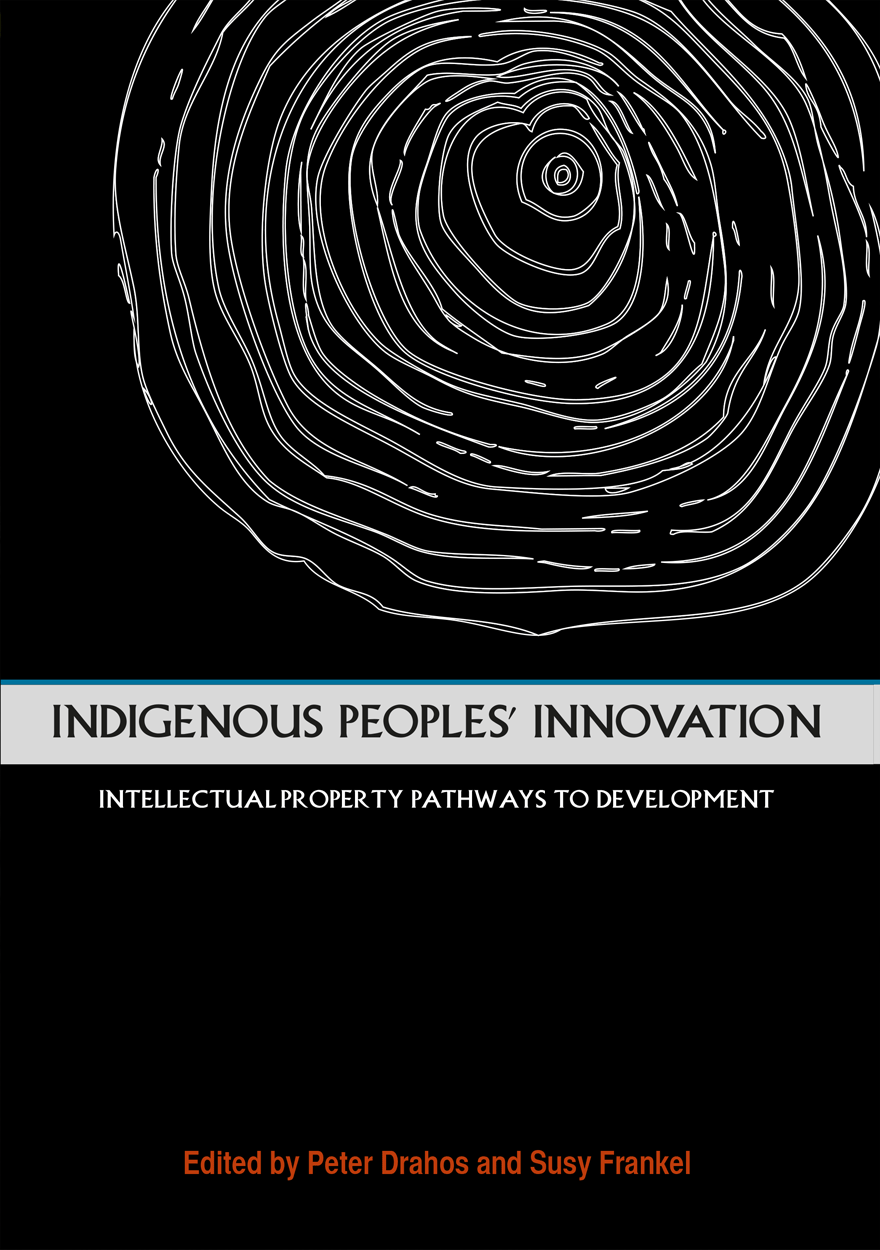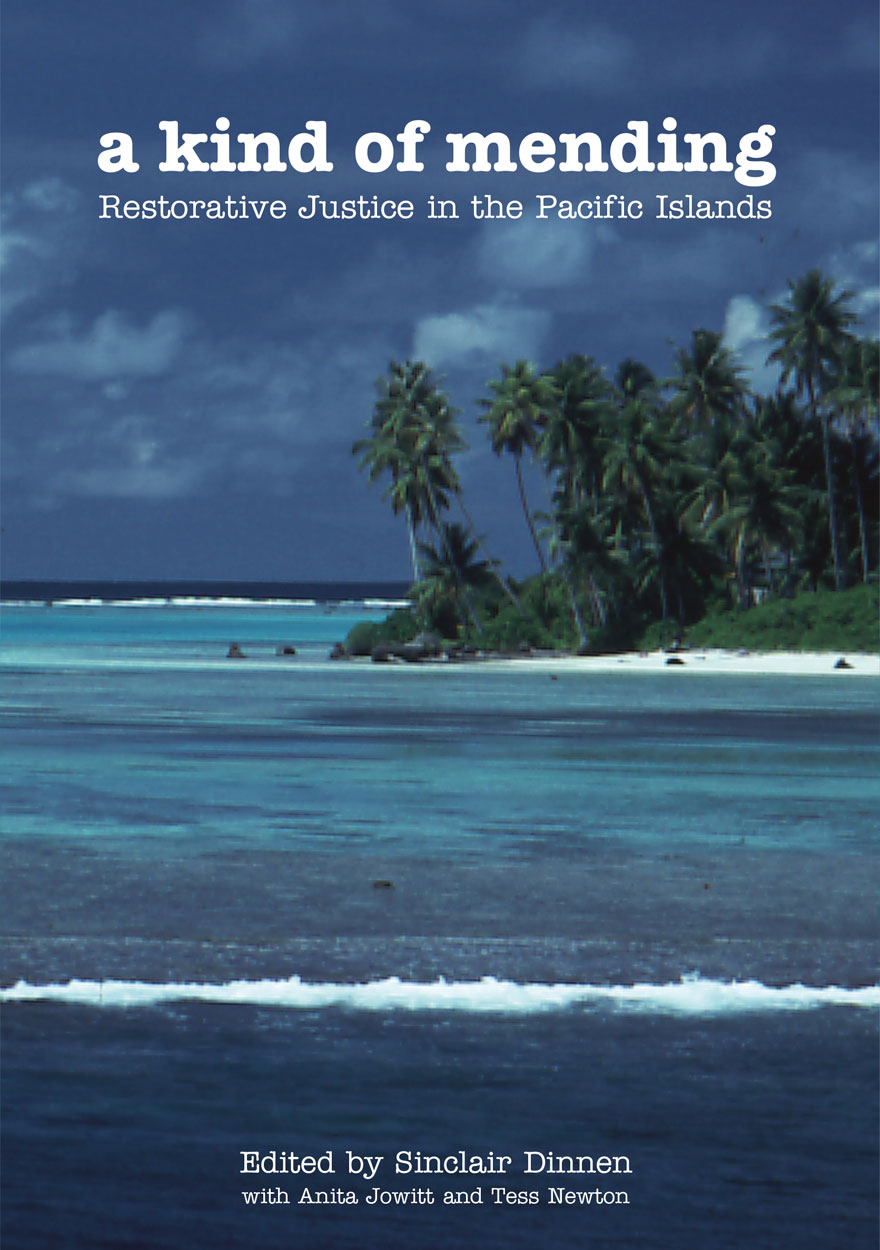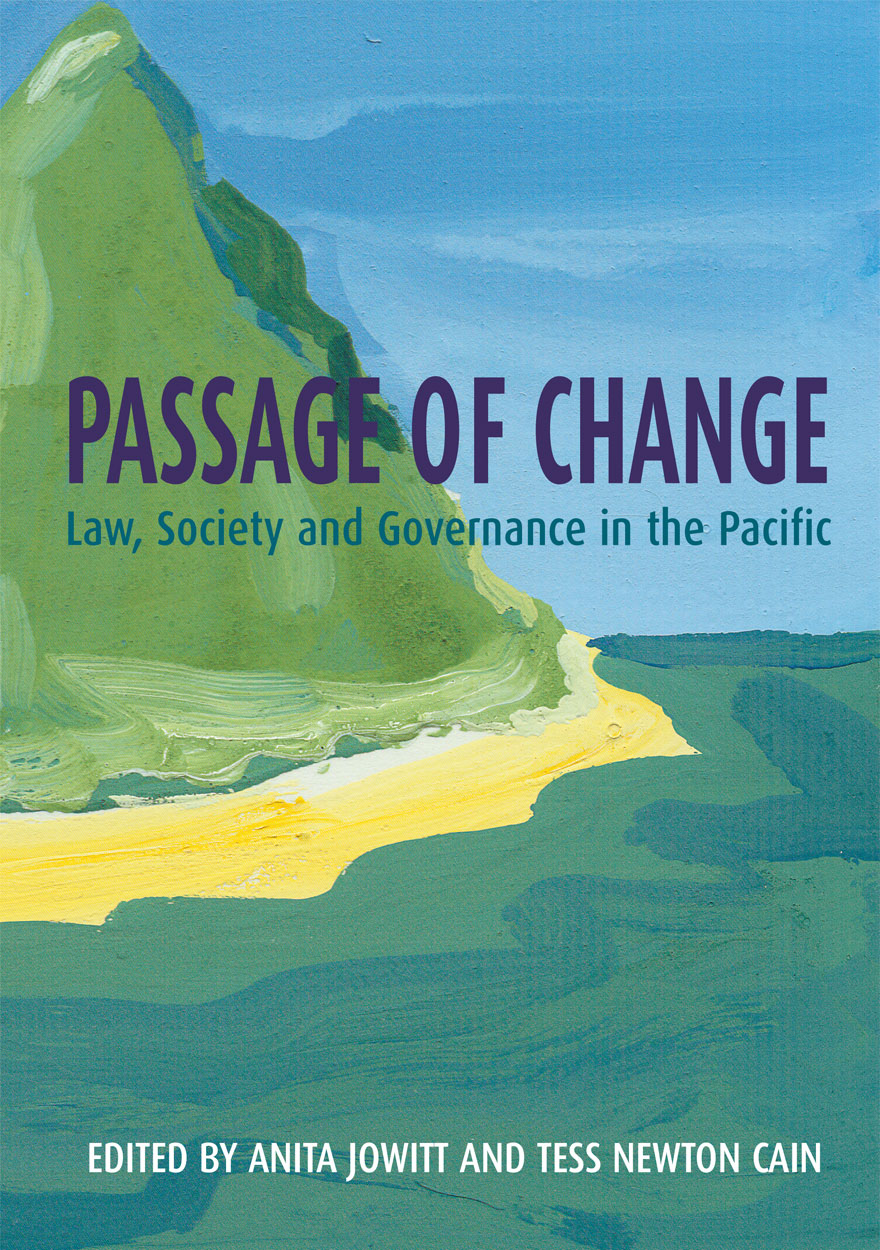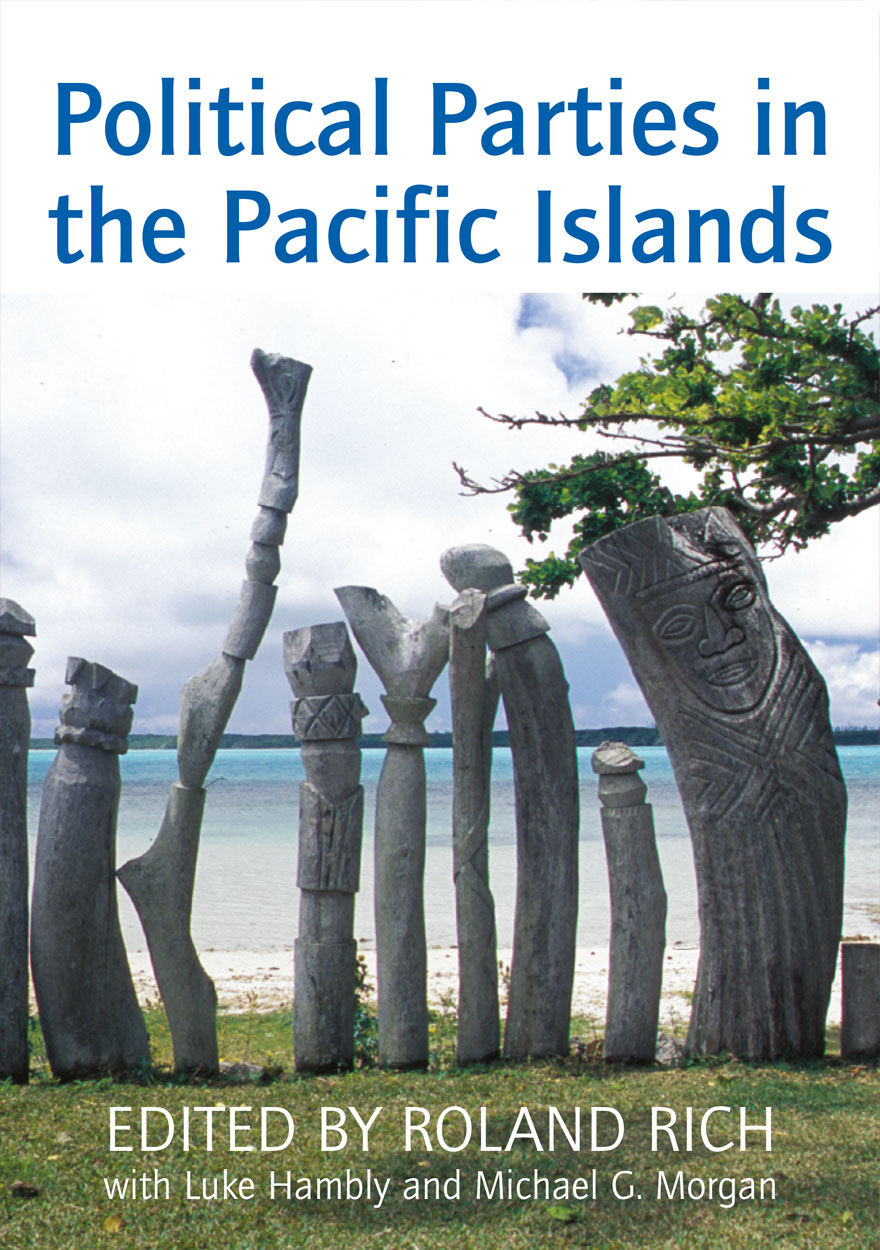Search titles
Displaying results 11 to 19 of 19.

A Political Memoir of the Anglo-French Condominium of the New Hebrides »
Authored by: Keith Woodward
Publication date: October 2014
Keith Woodward has produced an inside account of the intricacies of official politics in the latter stages of the history of the Anglo-French Condominium of the New Hebrides, which will be essential reading for anyone interested in the colonial period of Vanuatu. Woodward spent 25 years in the New Hebrides (1953 to 1978) based in the British Residency and it is his long service which makes his memoir so informative and important. Following a fascinating and insightful description of Port Vila and the New Hebrides when he arrived in the 1950s, Woodward focuses the rest of his memoir on issues relating to the difficulties the British faced in convincing the French that the two powers should come to an agreement on decolonisation of the New Hebrides—that is, to establish a process of constitutional advancement leading ultimately to independence.
— Howard Van Trease, Honorary Research Fellow, Emalus Campus, University of the South Pacific, Port Vila
This is a highly original, evocative and engaging memoir which offers an insightful firsthand account of colonial administration, bilateral French and British relations, political change and decolonisation in Vanuatu. It addresses some lacunae in the historiography of Vanuatu and dispels a number of assumptions about French intentions there. It will be of great benefit to people interested in Vanuatu, and more broadly in political change in the Pacific, constitutional arrangements, decolonisation, French-British relations, and particularly the divergent colonial policies of France and the United Kingdom.
— Gregory Rawlings, Anthropology, University of Otago

Indigenous Peoples' Innovation »
Intellectual Property Pathways to Development
Edited by: Peter Drahos, Susy Frankel
Publication date: August 2012
Traditional knowledge systems are also innovation systems. This book analyses the relationship between intellectual property and indigenous innovation. The contributors come from different disciplinary backgrounds including law, ethnobotany and science. Drawing on examples from Australia, New Zealand and the Pacific Islands, each of the contributors explores the possibilities and limits of intellectual property when it comes to supporting innovation by indigenous people.

Working Together in Vanuatu »
Research Histories, Collaborations, Projects and Reflections
Edited by: John Taylor, Nick Thieberger
Publication date: October 2011
This collection is derived from a conference held at the Vanuatu National Museum and Cultural Centre (VCC) that brought together a large gathering of foreign and indigenous researchers to discuss diverse perspectives relating to the unique program of social, political and historical research and management that has been fostered in that island nation. While not diminishing the importance of individual or sole-authored methodologies, project-centered collaborative approaches have today become a defining characteristic of Vanuatu’s unique research environment. As this volume attests, this environment has included a dynamically wide range of both ni-Vanuatu and foreign researchers and related research perspectives, most centrally including archaeologists and anthropologists, linguists, historians, legal studies scholars and development practitioners. This emphasis on collaboration has emerged from an ongoing awareness across Vanuatu’s research community of the need for trained researchers to engage directly with pressing social and ethical concerns, and out of the proven fact that it is not just from the outcomes of research that communities or individuals may be empowered, but also through their modes and processes of implementation, as through the ongoing strength and value of the relationships they produce. With this in mind, the papers presented here go beyond the mere celebration of collaboration by demonstrating Vanuatu’s specific environment of cross-cultural research as a diffuse set of historically emergent methodological approaches, and by showing how these work in actual practice.

A Kind of Mending »
Restorative Justice in the Pacific Islands
Edited by: Sinclair Dinnen, Anita Jowitt, Tess Newton
Publication date: November 2010
With their rich traditions of conflict resolution and peacemaking, the Pacific Islands provide a fertile environment for developing new approaches to crime and conflict. Interactions between formal justice systems and informal methods of dispute resolution contain useful insights for policy makers and others interested in socially attuned resolutions to the problems of order that are found increasingly in the Pacific Islands as elsewhere. Contributors to this volume include Pacific Islanders from Vanuatu, Fiji, the Solomon Islands, Papua New Guinea including Bougainville, as well as outsiders with a longstanding interest in the region. They come from a variety of backgrounds and include criminal justice practitioners, scholars, traditional leaders and community activists. The chapters deal with conflict in a variety of contexts, from interpersonal disputes within communities to large-scale conflicts between communities. This is a book not only of stories but also of practical models that combine different traditions in creative ways and that offer the prospect of building more sustainable resolutions to crime and conflict.

Passage of Change »
Law, Society and Governance in the Pacific
Edited by: Anita Jowitt, Tess Newton
Publication date: November 2010
Numerous issues face Pacific states trying to find their way in the early 21st century. Countries are striving to secure the benefits of modernisation. Governance, law and order are needed to reach such a goal, but development cannot be at the price of culture or the environment. The question of how to develop and maintain sound legal systems and legal rules whilst maintaining the unique cultural heritages within the Pacific is a challenge with no easy answer. This interdisciplinary collection locates issues of law and governance within the particular socio-political context of the Pacific island region, presenting sociological, anthropological and political insights alongside jurisprudential analysis. Key issues including corruption, the role of customary law in modern legal systems, the place of human rights in the Pacific, environmental issues and the structure of the state are explored from a variety of perspectives.

A Bird That Flies With Two Wings »
Kastom and state justice systems in Vanuatu
Authored by: Miranda Forsyth
Publication date: September 2009
This book investigates the problems and possibilities of plural legal orders through an in-depth study of the relationship between the state and customary justice systems in Vanuatu. It argues that there is a need to move away from the current state-centric approach to law reform in the South Pacific region, and instead include all state and non-state legal orders in development strategies and dialogue. The book also presents a typology of models of engagement between state and non-state legal systems, and describes a process for analysing which of these models would be most advantageous for any country in the South Pacific region, and beyond.

Oceanic Encounters »
Exchange, Desire, Violence
Edited by: Margaret Jolly, Serge Tcherkézoff, Darrell Tryon
Publication date: July 2009
This volume, the result of ongoing collaborations between Australian and French anthropologists, historians and linguists, explores encounters between Pacific peoples and foreigners during the longue durée of European exploration, colonisation and settlement from the sixteenth century to the twentieth century. It deploys the concept of ‘encounter’ rather than the more common idea of ‘first contact’ for several reasons. Encounters with Europeans occurred in the context of extensive prior encounters and exchanges between Pacific peoples, manifest in the distribution of languages and objects and in patterns of human settlement and movement. The concept of encounter highlights the mutuality in such meetings of bodies and minds, whereby preconceptions from both sides were brought into confrontation, dialogue, mutual influence and ultimately mutual transformation. It stresses not so much prior visions of ‘strangers’ or ‘others’ but the contingencies in events of encounter and how senses other than vision were crucial in shaping reciprocal appraisals. But a stress on mutual meanings and interdependent agencies in such cross-cultural encounters should not occlude the tumultuous misunderstandings, political contests and extreme violence which also characterised Indigenous-European interactions over this period.

Political Parties in the Pacific Islands »
Edited by: Roland Rich, Luke Hambly, Michael G. Morgan
Publication date: April 2008
While political parties remain an indispensable institutional framework for representation and governance in a democracy, the democracies of many Pacific Islands nations are undermined by the weakness and inefficacy of their local political parties.
Addressing the implications of the lack of established party systems across the Pacific, this collection seeks to illuminate the underlying assumptions and suppositions behind the importance of coherent and effective parties to overall democratic functioning.
Focusing on the political systems of East Timor, Papua New Guinea, Solomon Islands, Vanuatu, New Caledonia, Fiji and Samoa, the coherent structure of the volume makes it consistently useful as both an articulate analytical text and a reference tool concerning the political composition, history and direction of Pacific states.
Featuring contributions from scholars who are familiar names to even the most casual of Pacificists, Political Parties in the Pacific is the benchmark reference work on the political parties of the Pacific: an invaluable resource for students, scholars and researchers of the Pacific and international politics.

Pieces of the Vanuatu Puzzle »
Archaeology of the North, South and Centre
Authored by: Stuart Bedford
Publication date: February 2007
Pieces of the Vanuatu Puzzle presents the results of the most intensive and widespread archaeological investigations in Vanuatu for more than 30 years. For the first time the results of extensive excavations carried out on three islands in the archipelago are published. The sites span from the period of initial Lapita settlement through to later cultural transformations. The research has brought greater clarity to the early history of the Vanuatu archipelago and has wider implications for the region in general particularly in terms of how processes of cultural change are explained.
It is an essential reference work both for those archaeologists working in the western Pacific but also for those who deal with material culture generally and pottery more specifically.



